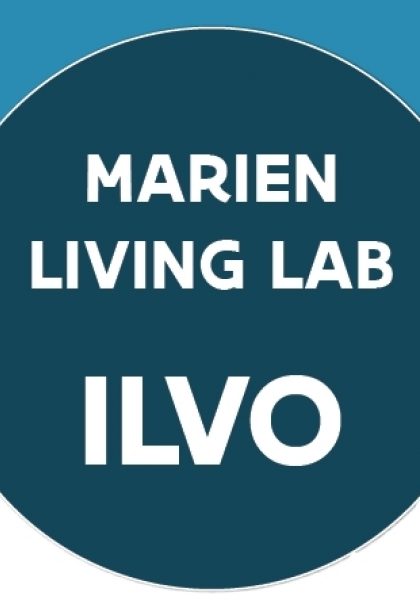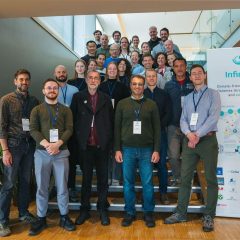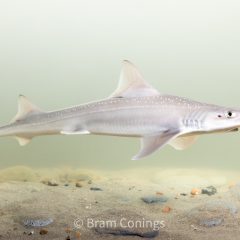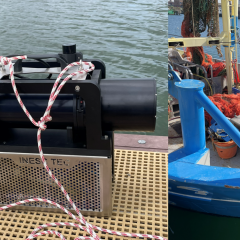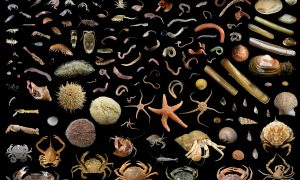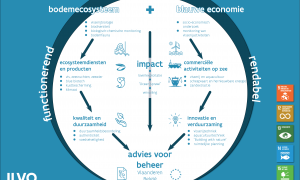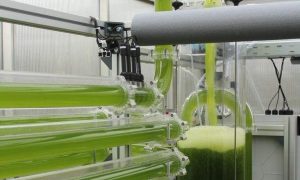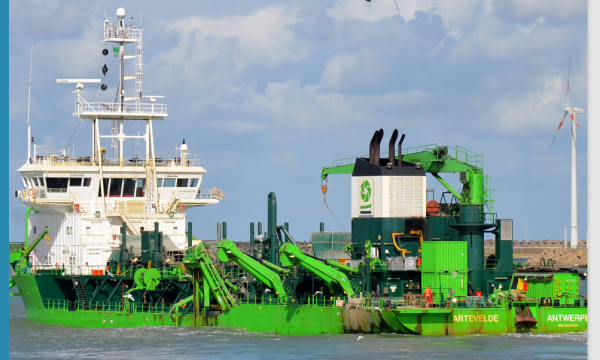Theme Marine production and marine environment
We are committed to the sustainable exploitation of natural resources from the sea and to innovative monitoring of the consequences of that exploitation on the marine ecosystem. Due to increasing investments in ‘blue growth’ and ‘blue biotechnology’, the use of our seas is on the rise. This growth has consequences for the natural resources and the use of (marine) space, which ILVO will monitor in an efficient way, using innovative techniques that we are helping to develop.
Marien Living Lab
We continue to equip the Flemish fleet with sensors that will provide valuable data for both fisheries and research, we offer fishermen the necessary tools to make their sustainability plans a success, and we are collaborating on the construction of one large ecosystem forecasting model that will enable the sustainable exploitation of our marine resources. We are broadening our view to a systems view with a focus on valorization and collaboration with companies and policy.
Wide range of research
The sea is a complex biotope with a wide range of uses. Within scientific research, this requires a variety of expertise and several lines of research. ILVO strives to understand the functioning of the marine ecosystem and to map the cumulative impact of human activities as framed within in an ecosystem approach. We also study the rich variety of existing and untapped products and molecules that the sea provides, along with ecosystem services, the importance of which we still too often underestimate. An important part of our work is devoted to making human activities at sea sustainable, linked to multiple uses of space and working with nature. All of this flows into scientifically substantiated advice for users of the sea. In the coming years, ILVO wants to extend the frontiers of various (marine) domains, from data-driven fishery to further development of our Marine Living Lab.
Data-driven fishery
In order to accelerate the digitalization of our marine fisheries, ILVO is working with a number of shipping companies on precision fisheries. We supplement the data-producing instruments on fishing vessels with new sensors and bring them together in real time in the cloud. With the resulting broad mix of data, we can design tools that allow ship owners and fishermen to fish more efficiently and sustainably. The new datasets are also valuable for scientific research.
Innovative data collection
ILVO is working on innovative ways to monitor the marine ecosystem. In addition to the traditional morphological identification of marine organisms, we focus on metabarcoding and eDNA (environmental DNA). That means we use genetic traces in the seawater and the seabed to monitor the biodiversity of different ecosystem groups and to map the state of fish stocks and their functional connectivity. Image processing is becoming a crucial tool to analyze fish catches and survey catches automatically and at a large scale. Through self-sampling, the fisherman is increasingly involved. For mariculture (aquaculture at sea), we are investigating how to use drones and sensors for monitoring, among other things, growth in breeding facilities.
Prediction models
Being able to predict how an ecosystem behaves has many advantages. For example, it allows us to evaluate the impact of climate measures or predict where fishermen will find large numbers of marketable fish versus where they will find more undersized fish or endangered species. In other words, it allows us to exploit our marine resources in a sustainable and efficient manner. ILVO is involved in the development of statistical models as part of one marine ecosystem model for our (North) Sea, which should make that possible. Furthermore, we continue to develop software to capture the growing flow of data in marine fisheries in a meaningful way.
More sustainable fishing (Visserij Verduurzaamt)
As part of a project on ‘More sustainable fishing’ (project Visserij Verduurzaamt) ILVO has developed scientific indicators with which the sustainability of a fishing fleet, sub-fleet and even individual vessels can be reliably assessed. Then fishermen can work together with scientists to make their operations more sustainable. Fishermen who score higher than the minimum threshold secure their access to the market and contribute to a positive image of Flemish sea fishery.
Symbiosis between people and nature
Management of marine projects based on a deep knowledge of biological processes creates a win-win situation for the project and the ecosystem. We use this principle of ‘working with nature’ in research on natural coastal protection, the restoration of shellfish beds, innovative aquaculture methods, multiple uses of the same space and the provision of new food products from the North Sea. For example, we are investigating the extent to which algae and shellfish offer potential for reducing the amount of nutrients in the sea and the concentration of greenhouse gases through CO2 sequestration (the storage of carbon in the seabed).
For everything ‘harvested’ from the sea, we strive for the zero waste principle. In processing, we look beyond only human consumption. A combination of passive fishing and mariculture can increase biodiversity and make Flemish fisheries more sustainable. In the cultivation of micro-algae and seaweed, for example, we not only pay attention to taste and quality: we also examine whether we can process them into animal feed, which may help reduce the methane emissions from cattle on land.
In addition to mining the multitude of marine (bio)molecules, ‘blue biotechnology’ also includes exploiting the still largely unrecognized marine gene pool. We have known for some time that marine microorganisms are very diverse, due to the extreme conditions found at sea. ILVO is investigating whether we can use certain microorganisms in synthetic biology or in the fermentation or biodegradation of persistent substances such as POPs or plastics.
Co-creation in the Marine Living Lab
The Marine Living Lab represents a flexible, co-creative way of doing research, together with the various sectors active at sea. By bringing together the expertise of ILVO with that of the partners involved, companies, sectors and society can find faster solutions for their challenges. ILVO Marine can always rely on the expertise present in other ILVO research groups and vice versa. This allows us to take a systems approach, which fits in with our pursuit of a sustainable and profitable exploitation of marine resources in the growing blue economy
Contact an expert
